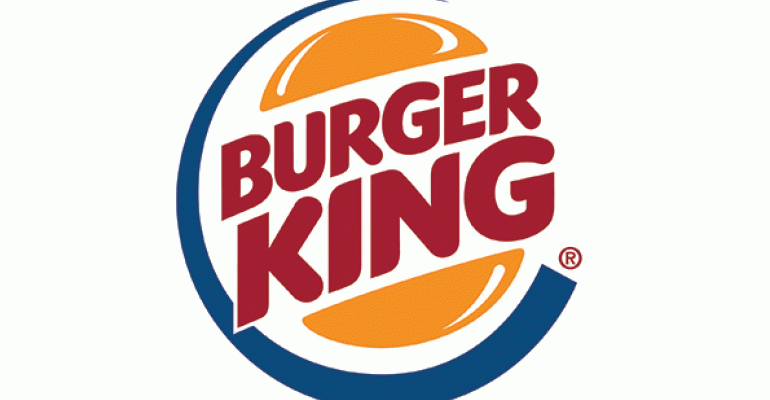Burger King same-store sales fell 0.8 percent in the U.S. and Canada in the second quarter ended June 30, parent company Restaurant Brands International Inc. said Thursday, amid what executives called a “challenging QSR environment.”
But sales elsewhere in the world, and at the company’s Tim Hortons brand, helped profit surge in the period.
Net income adjusted to factor out one-time events rose 36 percent, to $192.4 million, or 41 cents per share, from $141 million, or 30 cents per share a year ago.
In an earnings call Thursday, RBI executives said that they are focused on the long-term, and won’t let “industry changes” distract from their strategy.
“We did see some softness in the industry,” RBI CEO Daniel Schwartz said. “We made the right adjustments. We’ve been doing this now for almost six years. The industry changes from time to time. We try not to get too focused on macro changes.
“We’re very confident in our strategy, the same strategy that has been in place for almost six years.”
Same-store sales rose 0.6 percent worldwide at Burger King, and increased 2.7 percent at the Canada-dominated Tim Hortons brand, including 5.9-percent growth in the U.S. Revenue was flat, at just over $1 billion.
The weak results for Burger King in the U.S. come amid a broad downturn in the industry, and at quick-service concepts overall. That said, Burger King is also comparing itself to a quarter in which domestic same-store sales rose 7.9 percent — its two-year same-store sales are still up 7.1 percent.
Still, the decline came even though Burger King launched two major products in recent months: Grilled Dogs and Mac & Cheetos. Both earned Burger King huge impressions on social media.
Schwartz called Mac & Cheetos “one of the most covered product launches” in company history, with 3.2 billion earned impressions.
Still, he said, “we’re confident we have the right strategy in place.”
“Despite the ups and downs in the industry over [the past six years], our strategy has been constant,” Schwartz said. “If you look at the strategy we have in place, and is going to be in place with strong innovation, we’re excited in what we have. There’s a strong outlook for the Burger King brand in the U.S.”
RBI was created by the 2014 merger of Burger King and Tim Hortons. While the company is focused on improving same-store sales and profitability at its Burger King restaurants, the key element for the company’s success is international unit growth, particularly for Tim Hortons.
The 4,400-unit coffee-and-doughnut chain added 142 locations, including 92 units in Canada and 49 outlets in international markets, with only one additional unit in the U.S. market.
The company is using a franchise-focused growth strategy to add locations, with new development agreements in the U.S., and joint-venture master franchise deals in other global markets.
The joint-venture model has worked wonders to help Burger King grow outside the U.S. The company has 12 such agreements, including one in Brazil that has led to the construction of 500 locations there.
Tim Hortons recently announced one such joint venture in the Philippines. RBI CFO Josh Kobza said the country has an “attractive, growing” quick-service restaurant sector, and “an affinity for coffee and doughnuts.”
It’s also an Asian beachhead for future development.
“It’s a natural gateway to Asia,” Kobza said. “It’s an excellent entry point for the region.”
Still, investors were somewhat concerned about the sales trends. The stock was down slightly in Thursday morning trading, even though RBI bested analyst expectations for profit growth.
Schwartz said he hasn’t detected a major shift in consumer behavior at the company’s concepts.
“QSR is a competitive industry,” he said. “There has always been a strong presence of value among ourselves and our competitors. We’ve always believed in having a balanced approach between value and premium.”
Contact Jonathan Maze at [email protected]
Follow him on Twitter: @jonathanmaze





